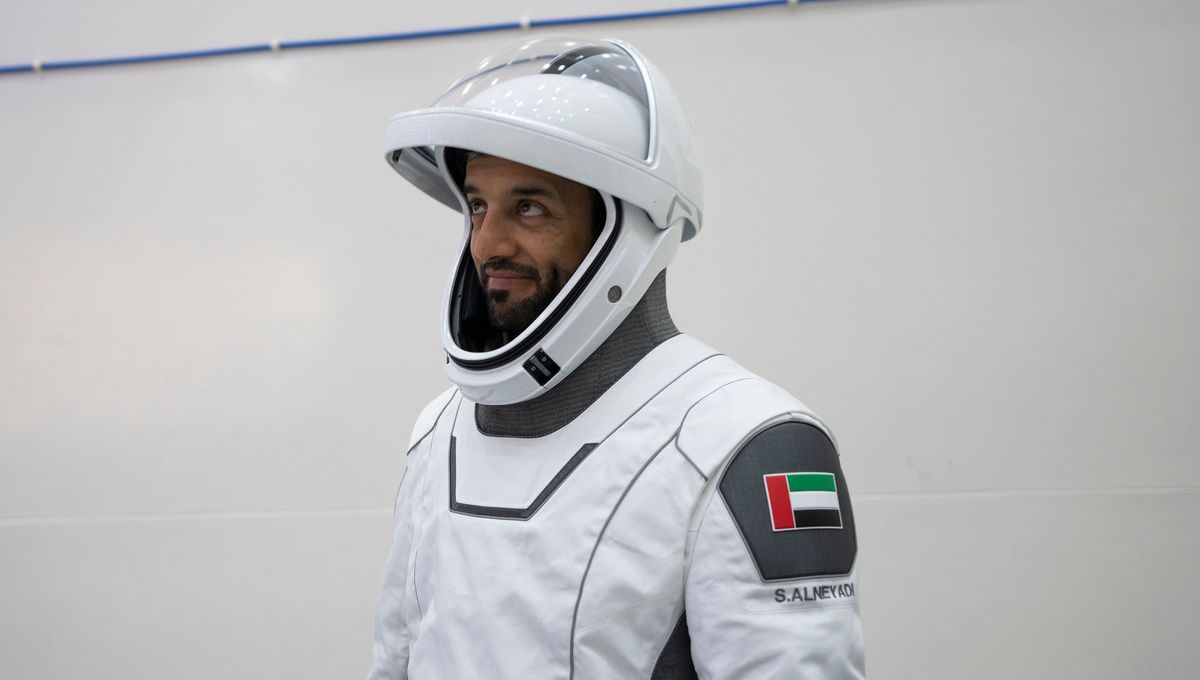
This week was the beginning of Ramadan, the holy month for Muslims around the world. And even out of this world. Emirati astronaut Sultan Al Neyadi is currently on the International Space Station (ISS) and this had many people wondering if, and how, the astronaut was going to observe the important period in the Islamic calendar.
Ramadan is the ninth month of the Islamic calendar and it is seen as a time of reflection, community, and prayer. It starts from the first sight of the crescent Moon to the next, as the Islamic calendar is a lunar calendar. So this year it will roughly last from March 22 to April 23.
During that time, adults fast from dawn until dusk in their location, but on the ISS there are 16 sunrises and sunsets every day, so that doesn’t work in orbit. And imagine fasting on the Moon, where the sun stays in the sky for 14 days.
The ISS is on Universal Coordinated Time, so that is the time that Al Neyadi can follow for starting the fast.
There are dispensations if fasting could affect a person’s physical or mental health, as well as if you are pregnant or if you are breastfeeding. Travelers can also be exempted and in a press conference in January, Al Neyadi stated that he falls into that category.
“Fasting is not compulsory if you’re feeling not well. So in that regard — anything that can jeopardize the mission or maybe put the crew member at risk — we’re actually allowed to eat sufficient food to prevent any escalation of lack of food or nutrition or hydration,” Al Neyadi said during the press conference.
Al Neyadi is part of Crew 6, together with NASA astronauts Stephen Bowen and Warren Hoburg and cosmonaut Andrey Fedyaev. He is the first Emirati astronaut on a long-duration mission on the ISS, where he will conduct 19 experiments on topics from back pain to plant biology and material science. The first Emirati astronaut, Hazza Al Mansouri, was on the ISS for almost eight days in 2019.
In his six months around Earth, Al Neyadi will also celebrate Eid al-Fitr, at the end of Ramadan, and Eid al-Adha, which will be celebrated in June/July. Al Neyadi mentioned that he’d be sharing some Emirati meals with his fellow astronauts.
There have been nine other Muslim men, apart from Al Neyadi and Al Mansouri, that have traveled to space, the first being prince Sultan bin Salman Al Saud in 1985. There had not been public discussion of how Muslims were to worship in space until Sheikh Muszaphar Shukor, the first Malaysian astronaut, requested guidelines from Malaysia’s National Fatwa Council.
These were important to establish, especially when it came to the Qibla – the direction toward which Muslims pray, facing the Kaaba in the Sacred Mosque in Mecca – kneeling during the prayer, and washing. In microgravity, the direction is left to the astronauts’ best ability at the start of the prayer, kneeling is not compulsory, and a wet towel will suffice.
Religion in space is nothing new. The first Israeli astronaut Ilan Ramon observed the Sabbath when he was on board the tragic last flight of Space Shuttle Columbia. Christmas is observed on the ISS and cosmonauts celebrate Orthodox Christmas, which takes place on January 7, as they still follow the Julian Calendar for religious celebrations. Buzz Aldrin, a Presbyterian, performed a communion service on the Moon. And for Catholics, the whole Moon is part of the dioceses of the Bishop of Orlando.
Source Link: With 16 Sunsets A Day, How Do Muslim Astronauts Observe Ramadan In Space?